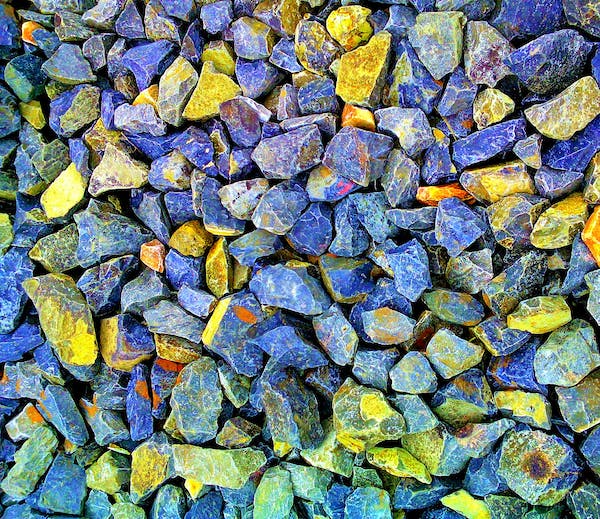Best Strategies in Engaging Youth in Mineral Resources

Importance of Mineral Resources
Mineral Resources the mineral resource industry is a vital sector of many countries’ economies. However, the industry faces a significant challenge of attracting young people to explore and pursue careers in the sector. Engaging youth in this industry is essential to ensure its sustainability and growth. This article provides the top five strategies for engaging youth in resources.
Strategy 1: Education and Training
Education and training play a significant role in attracting young people to the mineral resource industry. This strategy involves creating awareness and providing educational opportunities and training programs that expose young people to the sector’s potential careers. The industry can collaborate with educational institutions to develop relevant curriculums, offer scholarships, and internships to young people.
Strategy 2: Social Media and Digital Marketing
Social media and digital marketing are powerful tools in reaching out to young people. The industry can leverage social media platforms to create awareness, engage and interact with young people, and showcase the sector’s potential. Social media campaigns and digital marketing strategies can be used to create a positive image of the industry and make it attractive to young people.

Strategy 3: Industry Partnerships
Collaborating with other industries and organizations can help promote the mineral resource industry to young people. Partnerships with technology, engineering, and environmental organizations can highlight how the mineral resource industry is advancing in technology, innovation, and sustainability. Such partnerships can also create opportunities for cross-disciplinary learning and career growth.
Strategy 4: Mentorship Programs
Mentorship programs can provide young people with guidance, encouragement, and support in exploring and pursuing careers in the mineral resource industry. The industry can establish mentorship programs that connect young people with experienced professionals in the sector. These programs can create a sense of belonging and inspire young people to explore the sector’s potential.
Strategy 5: Community Engagement
Community engagement is crucial in attracting young people to the mineral resource industry. The industry can engage with local communities and create programs that provide opportunities for young people to learn, interact, and participate in the sector’s activities. Community engagement can also promote the sector’s positive impact on the economy, environment, and society.
Mineral resource plays a significant role in the development of our economies. The extraction and exploration of minerals require cutting-edge technologies and highly skilled professionals to accomplish these tasks with the highest degree of efficiency and safety. The youth population is a vital segment of our society, and their contribution to this sector is highly essential. However, their involvement has been limited in the past due to the perception that it is a risky venture that requires a vast amount of knowledge and experience.
To encourage the involvement of the youth in the minerals resources sector, there is a need to provide them with a safe and conducive environment to learn and develop their skills. The government should invest in programs that promote the development of the necessary skills required to participate in this sector. Additionally, the private sector can also play a fundamental role in promoting youth involvement in the mineral sector by offering internships, apprenticeships, and employment opportunities to young people.

Involving the youth in the minerals resources sector can significantly contribute to the development of this sector and our economies. Empowering and educating young people on the intricacies of this sector is key to its growth and sustainability. The government, private sector, and non-profit organizations must work together to provide the necessary support, resources, and knowledge required for the youth population to succeed in this field. With this support, we can create a sustainable future with a thriving minerals resources sector.

How are Youth Engaged in Natural Resources For Development?
Youth engagement in natural resources for development is a crucial aspect of sustainable growth and prosperity in any society. As the custodians of the future, young people play a vital role in shaping the management and conservation of our natural resources.
Firstly, youth are increasingly involved in environmental activism and advocacy campaigns. They are at the forefront of protests, marches, and grassroots initiatives aimed at raising awareness about the importance of sustainable practices and the protection of natural resources. Through social media platforms and online platforms, young activists are able to generate widespread awareness and mobilize support for their causes.
Moreover, youth are gaining access to education and training programs that equip them with the technical skills needed for sustainable natural resource management. Many universities and institutions now offer specialized courses and degrees in fields such as environmental science, ecology, and sustainable agriculture. These educational opportunities are essential in empowering young people to become leaders in natural resource development.
In addition, youth participation in community-based projects is on the rise. Many young individuals are actively involved in local initiatives aimed at conserving natural resources and promoting sustainable livelihoods. These projects range from reforestation efforts to eco-tourism initiatives that prioritize community involvement and benefit sharing. Youth engagement in such projects brings fresh perspectives and innovative ideas to the table.
Furthermore, youth are increasingly represented in decision-making processes related to natural resource management. Governments and international organizations recognize the importance of including youth voices in policy formulation and implementation. Through youth councils, platforms, and committees, young people are able to provide their insights and suggestions to ensure that strategies and regulations related to natural resources align with their aspirations and concerns.
Moreover, entrepreneurship is playing a significant role in youth engagement in natural resources for development. Many young individuals have identified opportunities to develop sustainable businesses that contribute to the conservation and responsible use of natural resources. These ventures range from organic farming and agroforestry to eco-friendly products and services. By promoting entrepreneurship, societies are empowering young people to actively participate in natural resource development while also fostering economic growth.
Another facet of youth engagement in natural resources is research and innovation. Young scientists and researchers are making significant contributions to the field by exploring alternative methods and technologies to optimize resource utilization. Their innovative approaches aim to minimize the negative environmental impacts of resource extraction while maximizing economic benefits. This constant pursuit of knowledge and innovation is driving sustainable development in various sectors.
Furthermore, youth engagement in solar and renewable energy projects is growing exponentially. Many young people are actively involved in promoting and implementing sustainable energy solutions, which greatly reduce dependence on fossil fuels and contribute to combating climate change. By harnessing the power of renewable resources, young individuals are actively driving the transition towards a greener and more sustainable energy sector.
Additionally, youth engagement in natural resource development extends to conservation efforts and biodiversity protection. Young people are becoming increasingly involved in wildlife conservation organizations and park management initiatives. They participate in activities such as animal surveys, habitat restoration, and community-based conservation programs. This hands-on involvement not only protects species and ecosystems but also educates and empowers young individuals to become stewards of nature.
Lastly, youth networks and organizations are facilitating collaboration and knowledge-sharing among young people involved in natural resource development. These platforms provide opportunities for young individuals to exchange ideas, experiences, and best practices. They also serve as a support system for young activists and advocates, creating a strong collective voice for sustainable development.
In conclusion, youth engagement in natural resources for development is vital for safeguarding the future of our planet. The active involvement of young people in environmental activism, education and training, community projects, decision-making processes, entrepreneurship, research, renewable energy, conservation efforts, and networking initiatives collectively contribute to sustainable development. Governments, organizations, and individuals must continue to prioritize and support youth engagement to ensure a harmonious and prosperous relationship between society and the natural resources upon which it depends.

How are African Youth Engaged in Natural Resources For Development
Natural resources play a crucial role in the development of African countries. These resources, such as minerals, oil, gas, and timber, provide immense opportunities for economic growth and sustainable development. However, the engagement of African youth in the exploitation and management of these resources is often overlooked.
Firstly, African youth are actively engaged in the extraction and mining of natural resources. Many young people work in mining communities, conducting tasks such as digging, panning, and drilling. This involvement provides them with employment opportunities and a source of income. However, it is important to ensure that these extraction activities are conducted in a sustainable and responsible manner to minimize the environmental impact and promote the well-being of both the individuals involved and the surrounding communities.
Secondly, African youth are increasingly becoming involved in the research and development of new technologies for natural resource management. With the advancements in technology, young Africans are using innovative approaches to extract and process resources more efficiently and sustainably. They are utilizing digital platforms, data analysis, and automation techniques to enhance resource productivity and reduce waste. Their ideas and contributions are crucial for the advancement of the natural resource sector and the overall development of the continent.
Furthermore, African youth are actively involved in advocacy and awareness campaigns related to natural resource management. They recognize the importance of protecting and preserving these resources for future generations. Through social media platforms, workshops, and community engagement, they raise awareness about the impacts of resource extraction on the environment and advocate for sustainable practices. By doing so, they contribute to shaping policies and regulations that promote responsible resource management.
Additionally, African youth are engaged in entrepreneurship and business ventures related to natural resources. They have identified opportunities to add value to these resources and create sustainable businesses. For example, young entrepreneurs are involved in the production and processing of agricultural products, such as cocoa, coffee, and palm oil. These value-added activities contribute to job creation, economic growth, and poverty reduction.
Moreover, African youth are actively participating in education and capacity-building programs related to natural resource management. Many universities and organizations offer scholarships and training opportunities for young Africans to develop their skills in resource governance, environmental management, and sustainable development. These programs empower youth with the knowledge and expertise needed to actively engage in decision-making processes and contribute to the sustainable development agenda.
Furthermore, African youth are involved in community-based initiatives aimed at sustainable natural resource management. They actively participate in projects that promote reforestation, sustainable agriculture, and renewable energy. By engaging in these initiatives, they contribute to environmental conservation and the diversification of income sources for local communities. Their involvement not only enhances community resilience but also fosters a sense of ownership and responsibility towards the environment.
In addition, African youth play a significant role in advocating for transparency and accountability in the natural resource sector. They demand greater transparency in the allocation of resource licenses, revenue management, and the distribution of benefits. Through social movements, protests, and awareness campaigns, they challenge corruption and seek to ensure that resource revenues are used to benefit the broader population.
Furthermore, African youth are involved in research and policy development related to natural resource governance. They conduct studies and produce reports on the social, economic, and environmental impacts of resource extraction. Their research findings contribute to evidence-based policy decisions and help shape sustainable resource management practices.
Lastly, African youth engage in international platforms and networks to share their experiences and learn from others. They participate in conferences, forums, and workshops that focus on natural resource governance and sustainable development. Through these platforms, they connect with other young people from different countries, exchange ideas, and learn about best practices in natural resource management.
African youth are engaged in various aspects of natural resource development. They work in extractive industries, contribute to technological advancements, advocate for sustainable practices, engage in entrepreneurship, participate in education programs, lead community-based initiatives, demand transparency, conduct research, and connect internationally. Their contribution is vital for ensuring sustainable development that benefits both the present and future generations. Measures should be taken to support and empower African youth, providing them with the necessary tools, resources, and platforms to continue engaging in natural resource management and driving Africa towards sustainable development.
Conclusion on Mineral Resources
In conclusion, engaging youth in the mineral resource industry is essential to ensure its sustainability and growth. The industry can use various strategies, including education and training, social media and digital marketing, industry partnerships, mentorship programs, and community engagement, to attract young people to explore and pursue careers in the sector. By implementing these strategies, the mineral resource industry can create a pipeline of diverse, skilled, and enthusiastic young professionals who can contribute to the sector’s success and growth.
References:
Bamber, P. M., & Hebblewhite, B. K. (2017). Mentorship in the mining industry: The Alberta Chamber of Resources’ approach. Journal of Canadian Petroleum Technology, 56(6), 454-457. https://doi.org/10.2118/185018-PA
Minerals Council of Australia. (2018). New report highlights need to attract young people to mining. Retrieved from https://www.minerals.org.au/news/new-report-highlights-need-attract-young-people-mining
Mining Association of Canada. (2019). Mining: Good for the young and the economy. Retrieved from https://mining.ca/blog/mining-good-young-and-economy
World Bank. (2018). Minerals for Climate Action: The Mineral Intensity of the Clean Energy Transition. Retrieved from https://www.worldbank.org/en/topic/extractiveindustries/brief/minerals-for-climate-action-the-mineral-intensity-of-the-clean-energy-transition

1 thought on “Best 5 Strategies in Engaging Youth in Mineral Resources”